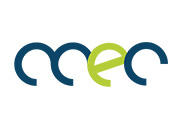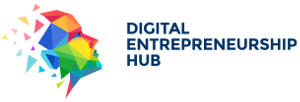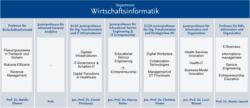Entrepreneurship with Purpose - Entrepreneurship Education
Learn to figure out how to align personal notions of values and purpose with entrepreneurial endeavour. Together with a team you develop a business model “with purpose” by using different business modelling tools.
(Bachelor: 5 ECTS, Master: 6 ECTS)
Overall Learning Objectives
In this class, students learn about the characteristics of social ventures that are driven by a dual mission: a strong social, societal and/or ecological purpose alongside their economic mission. The class invites students to reflect how social and economic purpose can be aligned in their ventures and how their own personal values can drive the various blocks of a venture creation process. To reflect and build upon the individual set of values, we are using the method 'Theory U’ by Otto Scharmer. To that end, students learn about, discuss, and reflect upon social and economic purpose during ideation, team building and business modelling. This knowledge is applied to a business idea that supports both the social and economic mission of the founding team.
The focus of this course lies on finding out
- your values in working life
- what purpose drives your ambitions in your working life and beyond
- how you can align values and purpose within a team
- how you can develop a business idea upon this and with reference to and/or addressing the Sustainable Development Goals (SDGs) as a reference frame
- what challenges and opportunities lie in business ideas that are driven by both social/ecological and economic purpose
Target Group
This interdisciplinary course aims at students interested in entrepreneurship and/or idea development. It is addressed at students from different backgrounds enrolled in either any type of bachelor program (General professional skills courses / Allgemeine Berufsvorbereitung) or the Master program of information systems. The interdisciplinary constellation of students with various backgrounds prepares ground for exchange and discovery of different mindsets, perspectives and working styles. This mirrors conditions and societal realities in the working world and the circumstances under which ideas are developed and efficient groupwork can take place.
Learning Methods & Tools
The course is designed in a blended learning format. Accompanying digital content (e.g. videos quizzes) is offered to add to and deepen knowledge presented in the course. Self-learning phases and phases of independent group work are alternated with class sessions. These phases include work on the basics of entrepreneurship and entrepreneurial tools (such as the business model canvas) which guide the development of own business ideas featuring both a social and economic mission. Students are presented with case studies that showcase entrepreneurship with purpose. In addition, the students learn how to reflect on the self and the team by using tools from the u Theory. Digital and agile tools for team organisation (e. g. Miro, Kanban board) are introduced to guide a purposeful business modelling process.
Exam performance
- Bachelor students (5 ECTS): final presentation and poster (teamwork)
- Master students (6 ECTS): final presentation and poster (teamwork) and pitch-deck (design, written) - accompanied by a chosen format of auditive setting (video or audio)
Structure in Summer Semester 2025
|
Week |
Session |
Contents |
|
W1 14.04. |
Entrepreneurship & Purpose - Introduction to the course |
General course organisation |
|
W2 28.04. |
Our environments. Our systems. |
Get to know SDGs, planetary boundaries, and their meaning for entrepreneurs. |
|
W3 05.05. |
Team Formations |
Based on learnings and preparation of the students, teams are formed |
|
W4 12.05. |
Sustainability, purpose, and transformation coming from the business world |
Case studies and their application on Business Model Canvas |
|
W5 19.05. |
Agile working and design thinking: Idea development in teamwork |
Question-led, time-boxing and instructions - students develop their own ideas for entrepreneurship |
|
W6 26.05. |
Market Research, using the BMC and finding resources |
Teams go deeper into their business ideas and conduct proper market research, while using the BMC as framework |
|
W7 02.06. |
Teamwork (online) |
Teamwork and preparation |
|
W8 16.06. |
Field Trip |
Excursion |
|
W9 23.06. |
Pitching |
Introduction on how to pitch |
|
W10 30.06. |
Challenges for teams and entrepreneurs with purpose |
Typical challenges entrepreneurs with purpose could face - and challenges in teams |
|
W11 07.07. |
Self-studying phase |
Teamwork on own business idea |
|
W12 14.07. |
Final Event |
Presentation of project ideas with final discussion among each other |
Partner
Coordinated by Prof. Sundermeier and Prof. Gersch, the course is run in collaboration with the Stiftung Entrepreneurship and the Presencing Institute.
Location
Startup Villa: Altensteinstraße 40, 14195 Berlin
Co-Working Space: First Floor
When entering the villa through the main entrance, go straight ahead and upstairs. The Co-Working space is the first room next to the stairs on your right-hand side.
Persons for Contact:
Catharina Werner
E-Mail: catharina.werner@fu-berlin.de





